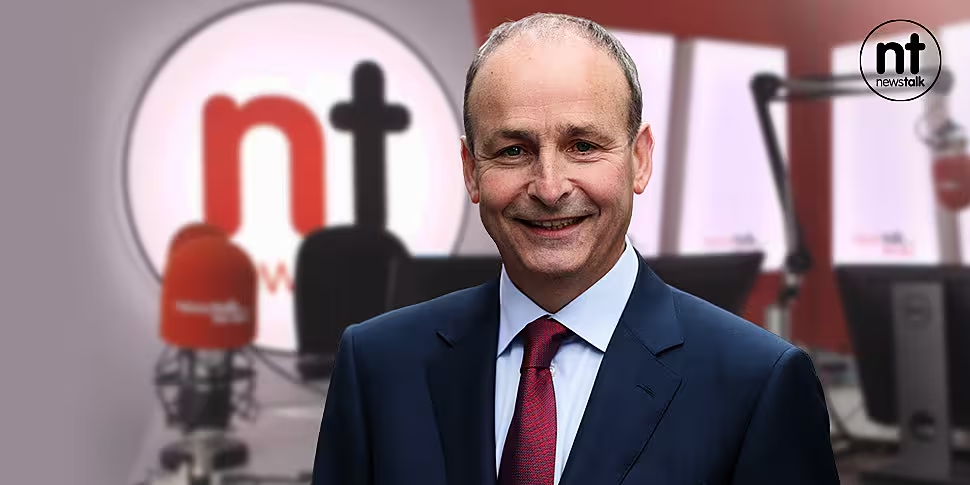Fianna Fáil leader Micheál Martin has said he 'doesn't buy the argument' that tackling climate change and helping rural Ireland are mutually exclusive.
Deputy Martin's party has begun negotiations with Fine Gael and the Greens on a potential programme for government.
A carbon emissions reduction of 7% is a red-line for the Greens, but some Fianna Fáil TDs have raised concerns about the impact of that on farming and rural communities.
Speaking to Newstalk Breakfast, Deputy Martin says he believes a new government can focus on reducing emissions without damaging rural Ireland in the process.
He observed: “I don’t buy the argument that climate change and rural Ireland are somehow mutually exclusive - I take an opposite view, actually. I think the conventional approaches to rural Ireland haven’t quite worked up until now.
“The parties are committed to [a 7% reduction in emissions]. It can help rural Ireland as well.
"The deep retrofitting programme could create jobs, for example, and other related sectors - in terms of wind energy and so, particularly offshore wind - is an area that we should develop and exploit more as a country. We haven’t been doing it sufficiently to date, which can create its own economic dividends."
Government formation
Other party leaders have expressed their hopes that a new government could be in place by June.
Deputy Martin says he doesn't know if that can be done, but it is what they're aiming for.
He explained: "All parties have said they would like to see a government by June. There will be a ratification process for every party.
"I think people will get impatient if it drags on too long."
The Fianna Fáil would not be drawn on whether he or Leo Varadkar would be first in line to be Taoiseach in any Fine Gael / Fianna Fáil coalition.
He said the two leaders have discussed the issue, but both have agreed that a programme for government is the main priority.
He also stressed that the various parties have agreed to not have a "running commentary" while talks are ongoing.
Deputy Martin said that while the aftermath of the COVID-19 crisis will be a major challenge for the next government, it will also be an opportunity to improve people's quality of life.
He explained: “There’s not endless money, but that said most global economists and the EU are saying that for the next two-three years there has to be an approach in terms of stimulating the economy, and higher deficits to facilitate that.
“One has to be smart as well, and one has to prioritise.
"We will not be in a position to do everything in a new government - but one has to both prioritise the key areas of housing and health - and climate change as well - but also lead to a better quality of life in doing so."









